Palestine’s record-breaking run in football’s Arab Cup has come to an end after a quarter-final loss against Saudi Arabia. Al Jazeera’s Sohail Malik was there and spoke to fans.
Palestine’s historic Arab Cup run ends in quarter-final loss


Palestine’s record-breaking run in football’s Arab Cup has come to an end after a quarter-final loss against Saudi Arabia. Al Jazeera’s Sohail Malik was there and spoke to fans.
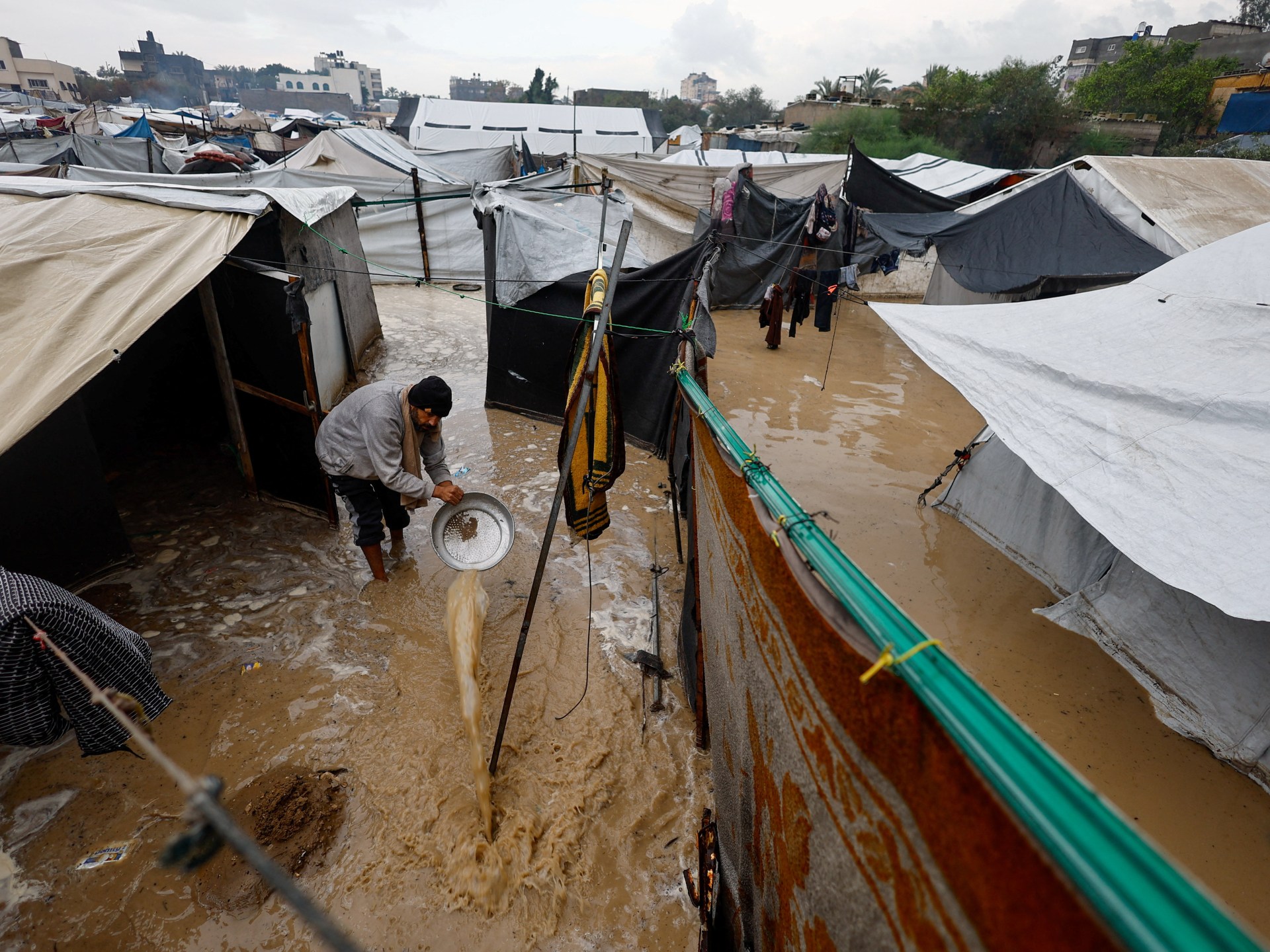
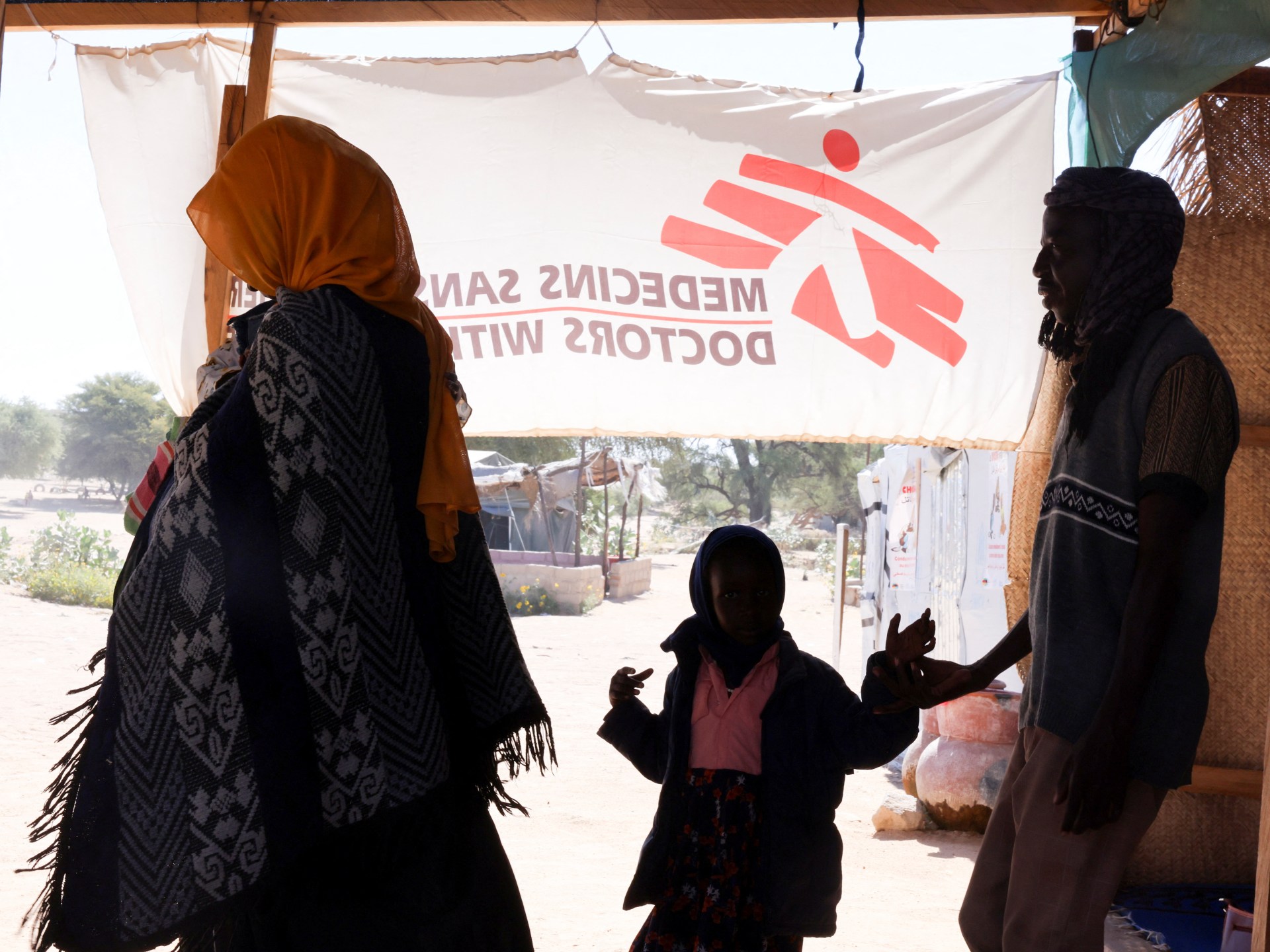
A women’s rights organisation has documented nearly 1,300 cases of endemic sexual and gender-based violence across war-torn Sudan, with the paramilitary Rapid Support Forces (RSF) blamed for the overwhelming majority of attacks.
The Strategic Initiative for Women in the Horn of Africa (SIHA) released findings on Thursday showing it had verified 1,294 incidents spanning 14 states since Sudan’s brutal civil war started in April 2023.
list of 3 itemsend of list
The disclosure underscores how sexual violence has become a systematic weapon in the war, the report said, which is one gruesome part of what humanitarian organisations have called the world’s largest humanitarian crisis.
The SIHA network attributed 87 percent of cases where perpetrators were identified as RSF fighters, describing the violations as “widespread, repeated, intentional, and often targeted” rather than contained incidents.
Rape accounted for more than three-quarters of documented incidents, while 225 cases involved children as young as four years old.
The group outlined a calculated three-stage pattern accompanying RSF territorial advances. Initial home invasions and looting accompanied by rape, followed by attacks in public spaces as control solidifies, and finally the long-term detention of women subjected to torture, gang rape and forced marriage.
“Women and girls from non-Arab tribes in Darfur, including the Masalit, Berti, Fur and Zaghawa, were directly targeted,” the report said. In Al-Gezira state, witnesses described RSF forces singling out lighter-skinned girls and women aged 14 to 30 as “trophies”.
Just last week, the Sudan Doctors Network, a medical monitoring organisation, documented 19 additional rape cases at al-Afad Camp in al-Dabba, where women fleeing the recently fallen city of el-Fasher were attacked by RSF forces. Two survivors are pregnant and receiving care.
The main fighting has shifted from Darfur, following the RSF capture of el-Fasher in October, to the vast central Kordofan region, which sits between territory controlled by the government-aligned Sudanese Armed Forces (SAF) in the east and RSF-held areas in the west.
The paramilitary force currently holds a commanding position and has been advancing on urban centres across West Kordofan.
After RSF forces captured the Heglig oilfield near the South Sudan border on December 8, both warring parties agreed to allow South Sudanese troops to secure the site, which serves as a critical economic lifeline for both countries.
South Sudan confirmed that seven of its soldiers were killed on Thursday in a drone strike by the SAF.
On December 5, RSF fighters attacked a preschool in Kalogi locality, killing more than 100 people, including 46 children. The attackers then targeted paramedics and civilians who rushed to assist victims in what authorities described as deliberate suicide drone strikes.
United Nations human rights chief Volker Turk warned days earlier that Kordofan faces “another wave of mass atrocities,” saying history was “repeating itself” after international warnings before el-Fasher’s fall went largely unheeded.
Since late October, the UN has documented at least 269 civilian deaths from bombardment, artillery fire and summary killings in the region, though communication blackouts suggest the actual toll is far higher.
The conflict has displaced 12.4 million people and forced 3.3 million to flee as refugees since erupting in April 2023.
Massad Boulos, a senior adviser to President Donald Trump, met this week with British Foreign Secretary Yvette Cooper, with both governments committing to “cut external financial and military backing for the belligerents” fuelling the war.
Washington sanctioned four Colombian nationals this week for running a recruitment network that has brought more than 300 military veterans to fight for the RSF, though the measures did not target a United Arab Emirates company that investigators say arranged the deployments.
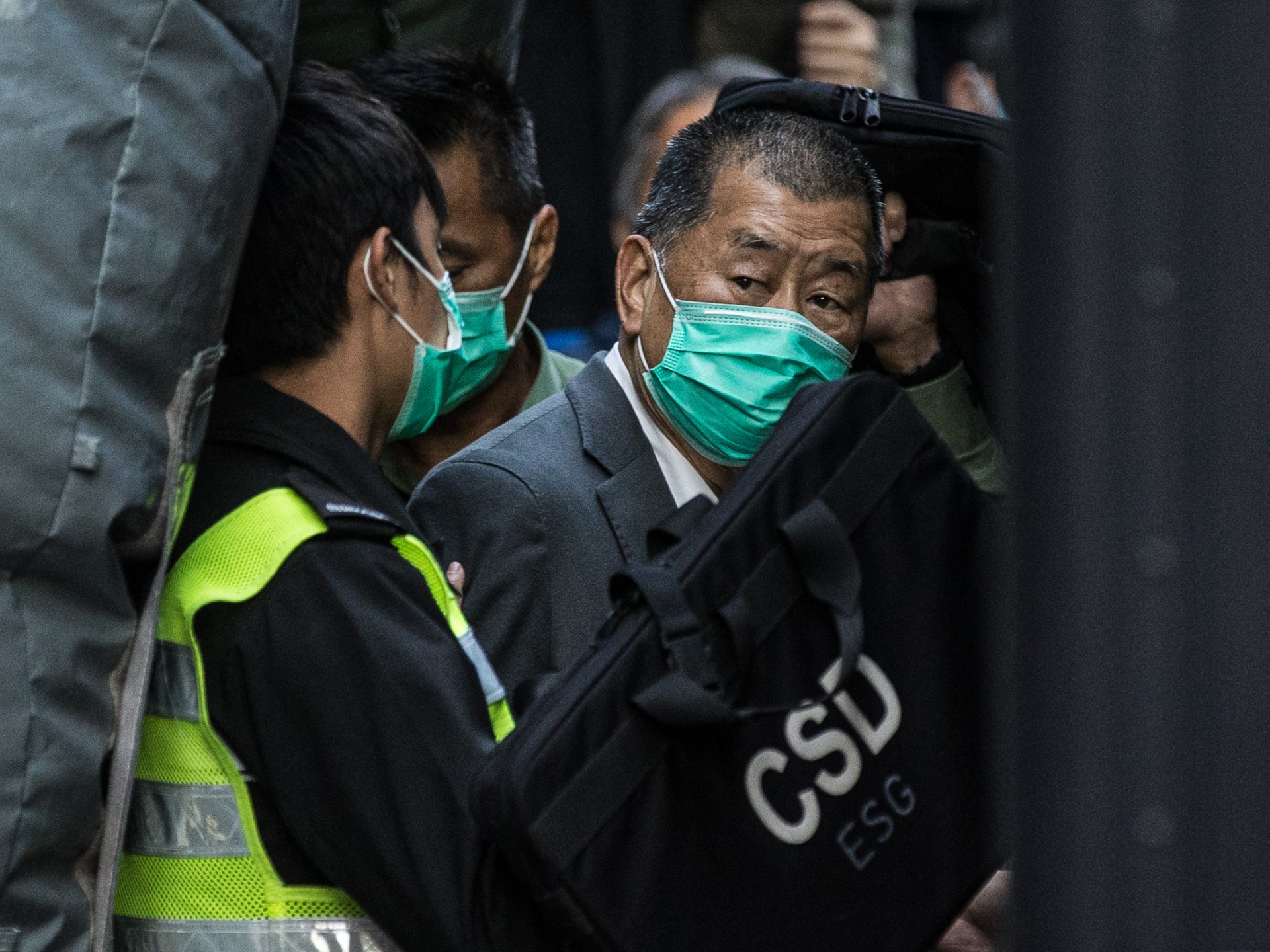
Hong Kong’s High Court is set to hand down a verdict in the case of pro-democracy campaigner and media mogul Jimmy Lai next week, bringing an end to his lengthy national security trial.
Lai’s verdict will be delivered by a three-judge panel in a hearing that begins at 10am local time (02:00 GMT) on Monday, according to a court diary notice seen on Friday.
list of 3 itemsend of list
Founder of the now-shuttered pro-democracy Apple Daily newspaper, Lai, 78, is charged with foreign collusion under Hong Kong’s national security law, which Beijing imposed following huge and sometimes violent pro-democracy protests in 2019.
He previously pleaded not guilty to two counts of conspiring to collude with foreign forces, as well as a third count of sedition under a colonial-era law.
Authorities accuse Lai, who has been detained since December 2020, of using the Apple Daily to conspire with six former executives and others to produce seditious publications between April 2019 and June 2021.
He is accused of using his publication to conspire with paralegal Chan Tsz-wah, activist Andy Li, and others to invite foreign countries – including the United States, Britain and Japan – to impose sanctions, blockades and other hostile measures against Hong Kong and China.
Prosecutors also accuse Lai of stoking hatred against authorities in Beijing and Hong Kong through writing and publishing more than 150 critical op-eds in the outlet.
He faces life imprisonment if convicted.
Lai has been held in solitary confinement for more than 1,800 days, with his family saying they fear for his wellbeing and his health is deteriorating as he suffers from diabetes, high blood pressure, as well as heart palpitations that require medication.
In August, the court postponed closing arguments in his 156-day trial – which began in December 2023 – citing a “medical issue” involving the 78-year-old’s heart.
Authorities say Lai has received proper treatment and medical care during his detention.
Hong Kong was handed back to China in 1997 after more than 150 years under British colonial rule.
As part of the “one country, two systems” approach, Hong Kong officially operates a separate judicial system based on Common Law traditions, meaning Lai has greater legal protections than he would in mainland China.
But Hong Kong has experienced significant democratic backsliding in recent years, which accelerated following mass pro-democracy protests in 2019-20, which resulted in a harsh crackdown on dissent in the territory by Beijing.
In 2020, Chinese authorities introduced a draconian national security law to crush the protest movement, establishing secession, subversion, terrorism, and collusion with foreign organisations as crimes carrying hefty punishments.
Lai’s trial represents the most high-profile use of that law, with critics condemning his trial as politically motivated.
The Chinese and Hong Kong governments insist Lai is being given a fair trial and have said the legal process must be allowed to reach its conclusion.
But his case has drawn international scrutiny, including from US President Donald Trump, who has repeatedly promised to “save” Lai. In August, Trump promised to do “everything I can to save him”.
“His name has already entered the circle of things that we’re talking about, and we’ll see what we can do,” Trump told Fox News Radio.
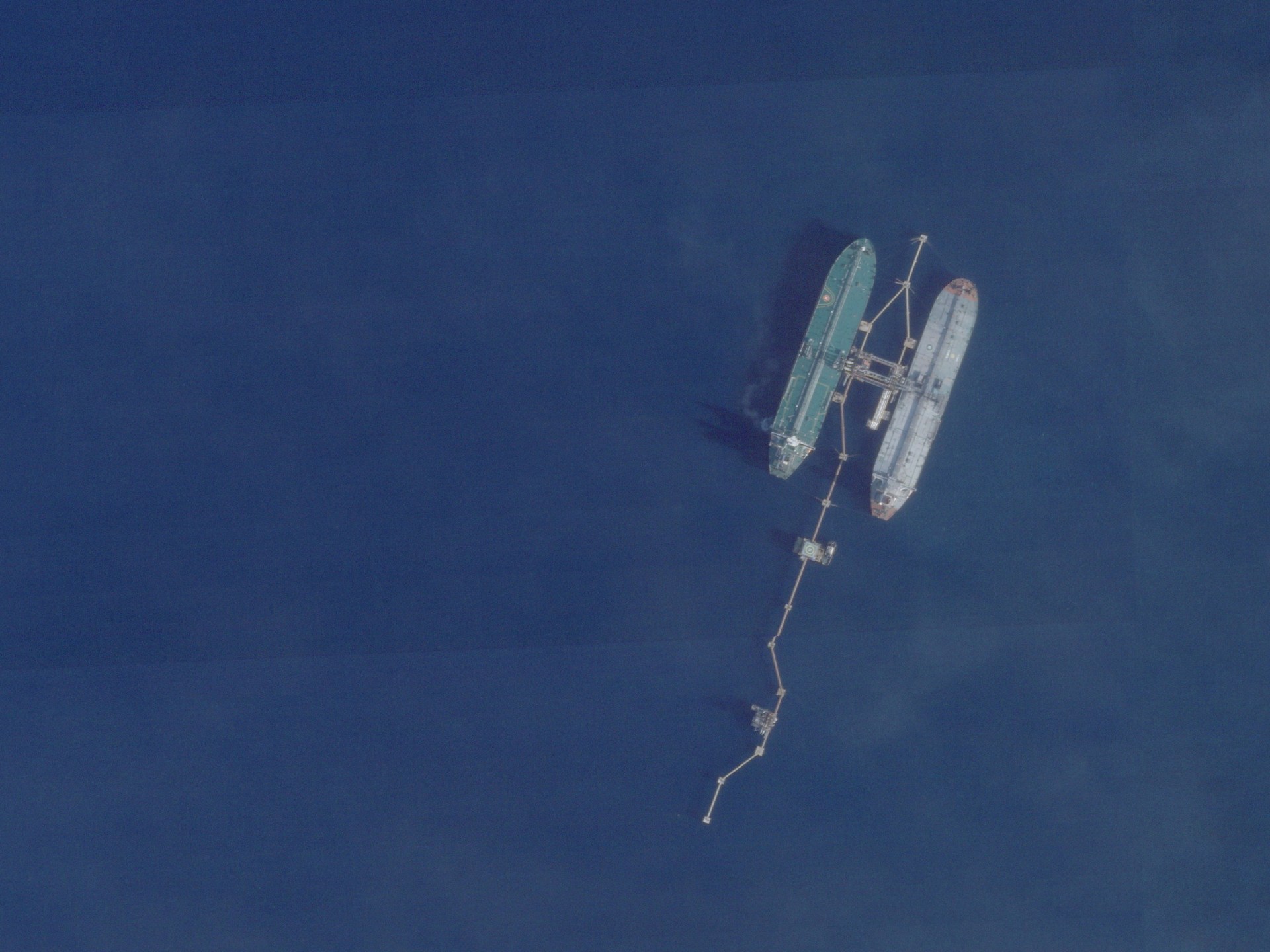
On Wednesday, the United States hijacked an oil tanker off the coast of Venezuela – a new move in the ongoing aggression against the South American nation by the administration of US President Donald Trump.
Over recent months, the US has gone about wantonly blowing up small boats in the Caribbean Sea along with their passengers, whom Trump has telepathically divined to be drug traffickers.
Exercising his passion for ridiculous overstatement, Trump proclaimed on Wednesday that the seized vessel was a “large tanker, very large, largest one ever seized, actually”.
When asked at a news conference about the ship’s altered destination, Trump advised reporters to “get a helicopter and follow the tanker” – although folks might reasonably be wary of taking to the skies around Venezuela given Trump’s unilateral decree in November that the country’s airspace was “closed in its entirety”.
Of course, the airspace closure hasn’t managed to interfere with continuing US deportation flights to Venezuela.
Regarding the fate of the tanker’s valuable contents, Trump remarked, “I assume we’re going to keep the oil.”
To be sure, this comment doesn’t do much to shore up the US claim that it’s not after Venezuela’s vast oil reserves at all, but is simply trying to guard the hemisphere against nefarious Venezuelan narco-terrorists endeavouring to flood the homeland with fentanyl and other deadly products.
As per Trumpian fantasy, the ringleader of the narco-terror operation is none other than Venezuelan President Nicolas Maduro himself.
Never mind that Venezuela has approximately zero to do with drugs entering the US and doesn’t even produce fentanyl.
At times like these, one can’t help but recall US behaviour vis-a-vis another oil-rich nation around the turn of the century, when then-President George W Bush oversaw a campaign of mass slaughter in Iraq based on manufactured allegations of weapons of mass destruction.
But amid all the talk of a potential US war on Venezuela – which Trump has been threatening for months – the fact of the matter is that the US is already waging war on the country.
US Defense Secretary Pete Hegseth, newly rebranded as the “Secretary of War”, recently admitted as much when he chalked up US war crimes against Caribbean seafarers to the “fog of war”.
In reality, however, the US war on Venezuela long predates this year’s slew of extrajudicial executions and terrorisation of local fishermen.
After backing a failed coup in 2002 against Maduro’s predecessor Hugo Chavez, a socialist icon and thorn in the side of empire, the US imposed punishing sanctions on Venezuela in 2005.
According to the Washington, DC-based Center for Economic and Policy Research, these sanctions would go on to cause more than 40,000 deaths in the country in 2017-18 alone. Anyone doubting the intentional lethality of coercive economic measures would do well to recall the 1996 response of then-US ambassador to the United Nations Madeleine Albright to the estimate that half a million Iraqi children had thus far perished as a result of the US sanctions regime: “We think the price is worth it.”
Sanctions on Venezuela were then drastically intensified by Trump in 2019, with an eye to assisting Juan Guaido – the little-known right-wing character who had spontaneously appointed himself interim president of Venezuela – in his efforts to oust Maduro.
Those efforts were unsuccessful, and Guaido ended up in Miami, but sanctions continued to wreak devastating havoc. In March 2019, Trump’s former Secretary of State Mike Pompeo boasted eloquently to the press of the effectiveness of economic warfare: “The circle is tightening. The humanitarian crisis is increasing by the hour … You can see the increasing pain and suffering that the Venezuelan people are suffering from.”
Indeed, while the official narrative is that sanctions are meant to target the powers that be, it is the general public that pays the price. In the years following Guaido’s failed auto-election, the “suffering that the Venezuelan people are suffering from” became ever more apparent, and by 2020, former UN Special Rapporteur Alfred de Zayas estimated that 100,000 Venezuelans had died on account of sanctions.
In 2021, UN expert Alena Douhan reported that the economic blockade had rendered more than 2.5 million Venezuelans severely food insecure. This is to say nothing of outbreaks of previously controlled diseases, stunted growth among children, and shortages of water and electricity.
It can meanwhile be safely filed under the “can’t make this sh*t up” category that, at the very moment he is going after alleged narco-traffickers in Venezuela, Trump chose to pardon Juan Orlando Hernandez, the right-wing former narco-president of Honduras who was convicted last year in a US federal court.
In October, Trump authorised the CIA to conduct covert operations inside Venezuela – the same CIA, mind you, that has been up to its eyeballs in the drug trade since forever. Now with the tanker hijacking, the administration has underscored its acute disregard for anything resembling civilised diplomacy.
The other day, I spoke with a young Venezuelan man whom I met in the Darien Gap in 2023 as he made his way towards the US – one of millions of Venezuelans forced to leave home in search of a life that is economically sustainable.
After almost drowning in the river as he crossed from Mexico into the US, he was detained for a month and then provisionally released into the country. Two years later, he was captured by ICE agents in California, detained for several more months, and then deported to Caracas.
When I asked him his thoughts on Trump’s current machinations in Venezuela, he said simply: “I have no words.”
And as the US barrels towards another surreal war armed with blatant lies, words are indeed often hard to come by.
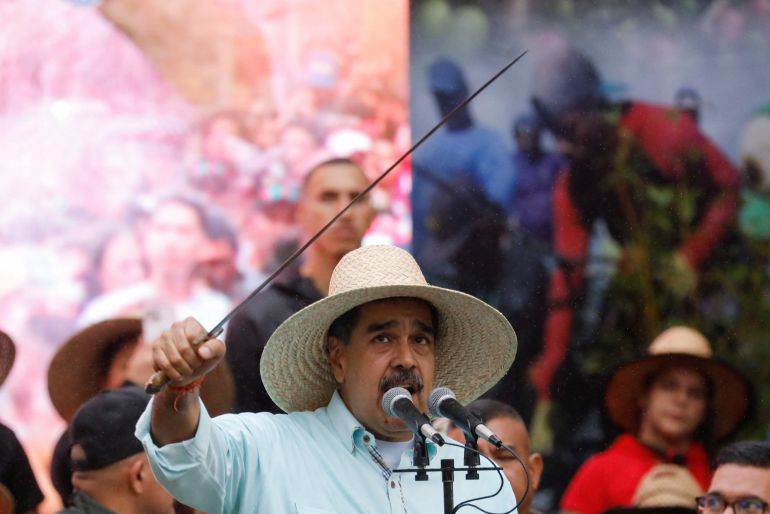
The Trump administration has imposed new sanctions on Venezuela, targeting three nephews of President Nicolas Maduro’s wife, Cilia Flores, as well as six crude oil tankers and shipping companies linked to them, as Washington steps up pressure on Caracas.
Two of the sanctioned nephews were previously convicted in the United States on drug trafficking charges before being released as part of a prisoner exchange.
list of 3 itemsend of list
The US is also targeting Venezuela’s oil sector by sanctioning a Panamanian businessman, Ramon Carretero Napolitano, whom it says facilitates the shipment of petroleum products on behalf of the Venezuelan government, along with several shipping companies.
The US Treasury Department said on Thursday that the measures include sanctions on six crude oil tankers it said have “engaged in deceptive and unsafe shipping practices and continue to provide financial resources that fuel Maduro’s corrupt narco-terrorist regime”.
Four of the tankers, including the 2002-built H Constance and the 2003-built Lattafa, are Panama-flagged, with the other two flagged by the Cook Islands and Hong Kong.
The vessels are supertankers that recently loaded crude in Venezuela, according to internal shipping documents from state oil company PDVSA.
In comments on Thursday night, Trump also repeated his threat to soon begin strikes on suspected narcotics shipments making their way via land from Venezuela to the US.
His remarks followed the US seizure of an oil tanker off Venezuela’s coast.
White House Press Secretary Karoline Leavitt said the US would take the tanker to a US port.
“The vessel will go to a US port, and the United States does intend to seize the oil,” Leavitt said during a news briefing. “However, there is a legal process for the seizure of that oil, and that legal process will be followed.”
Maduro condemned the seizure, calling it “an act of piracy against a merchant, commercial, civil and private vessel,” adding that “the ship was private, civilian and was carrying 1.9 million barrels of oil that they bought from Venezuela”.
He said the incident had “unmasked” Washington, arguing that the true motive behind the action was the seizure of Venezuelan oil.
“It is the oil they want to steal, and Venezuela will protect its oil,” Maduro added.
Maduro’s condemnation came as US officials emphasised that the latest sanctions also targeted figures close to the Venezuelan leader.
Franqui Flores and Efrain Antonio Campo Flores, nephews of Venezuelan first lady Cilia Flores, were also sanctioned. The two became known as the “narco nephews” after their arrest in Haiti in 2015 during a US Drug Enforcement Administration sting.
They were convicted in 2016 on charges of attempting to carry out a multimillion-dollar cocaine deal and sentenced to 18 years in prison, before being released in a 2022 prisoner swap with Venezuela.
A third nephew, Carlos Erik Malpica Flores, was also targeted. US authorities allege he was involved in a corruption scheme at the state oil company.
Maduro and his government have denied links to criminal activity, saying the US is seeking regime change to gain control of Venezuela’s vast oil reserves.
Beyond the individuals targeted, the US is also preparing to intercept additional ships transporting Venezuelan oil, the Reuters news agency reported, citing sources.
Asked whether the Trump administration planned further ship seizures, White House spokesperson Leavitt told reporters she would not speak about future actions but said the US would continue executing the president’s sanctions policies.
“We’re not going to stand by and watch sanctioned vessels sail the seas with black market oil, the proceeds of which will fuel narcoterrorism of rogue and illegitimate regimes around the world,” she said on Thursday.
Wednesday’s seizure was the first of a Venezuelan oil cargo amid US sanctions that have been in force since 2019. The move sent oil prices higher and sharply escalated tensions between Washington and Caracas.
